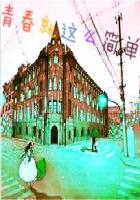I ask you, gentlemen, would Smerdyakov have behaved in that way? Would he have left the envelope on the floor?
"No, this was the action of a frantic murderer, a murderer who was not a thief and had never stolen before that day, who snatched the notes from under the pillow, not like a thief stealing them, but as though seizing his own property from the thief who had stolen it.
For that was the idea which had become almost an insane obsession in Dmitri Karamazov in regard to that money.And pouncing upon the envelope, which he had never seen before, he tore it open to make sure whether the money was in it, and ran away with the money in his pocket, even forgetting to consider that he had left an astounding piece of evidence against himself in that torn envelope on the floor.All because it was Karamazov, not Smerdyakov, he didn't think, he didn't reflect, and how should he? He ran away; he heard behind him the servant cry out; the old man caught him, stopped him and was felled to the ground by the brass pestle.
"The prisoner, moved by pity, leapt down to look at him.Would you believe it, he tells us that he leapt down out of pity, out of compassion, to see whether he could do anything for him.Was that a moment to show compassion? No; he jumped down simply to make certain whether the only witness of his crime were dead or alive.Any other feeling, any other motive would be unnatural.Note that he took trouble over Grigory, wiped his head with his handkerchief and, convincing himself he was dead, he ran to the house of his mistress, dazed and covered with blood.How was it he never thought that he was covered with blood and would be at once detected? But the prisoner himself assures us that he did not even notice that he was covered with blood.That may be believed, that is very possible, that always happens at such moments with criminals.On one point they will show diabolical cunning, while another will escape them altogether.But he was thinking at that moment of one thing only- where was she? He wanted to find out at once where she was, so he ran to her lodging and learnt an unexpected and astounding piece of news- she had gone off to Mokroe to meet her first lover."Chapter 9
The Galloping Troika.The End of the Prosecutor's SpeechIPPOLIT KIRILLOVITCH had chosen the historial method of exposition, beloved by all nervous orators, who find in its limitation a check on their own eager rhetoric.At this moment in his speech he went off into a dissertation on Grushenka's "first lover," and brought forward several interesting thoughts on this theme.
"Karamazov, who had been frantically jealous of everyone, collapsed, so to speak, and effaced himself at once before this first lover.What makes it all the more strange is that he seems to have hardly thought of this formidable rival.But he had looked upon him as a remote danger, and Karamazov always lives in the present.
Possibly he regarded him as a fiction.But his wounded heart grasped instantly that the woman had been concealing this new rival and deceiving him, because he was anything but a fiction to her, because he was the one hope of her life.Grasping this instantly, he resigned himself.
"Gentlemen of the jury, I cannot help dwelling on this unexpected trait in the prisoner's character.He suddenly evinces an irresistible desire for justice, a respect for woman and a recognition of her right to love.And all this at the very moment when he had stained his hands with his father's blood for her sake! It is true that the blood he had shed was already crying out for vengeance, for, after having ruined his soul and his life in this world, he was forced to ask himself at that same instant what he was and what he could be now to her, to that being, dearer to him than his own soul, in comparison with that former lover who had returned penitent, with new love, to the woman he had once betrayed, with honourable offers, with the promise of a reformed and happy life.And he, luckless man, what could he give her now, what could he offer her?
"Karamazov felt all this, knew that all ways were barred to him by his crime and that he was a criminal under sentence, and not a man with life before him! This thought crushed him.And so he instantly flew to one frantic plan, which, to a man of Karamazov's character, must have appeared the one inevitable way out of his terrible position.That way out was suicide.He ran for the pistols he had left in pledge with his friend Perhotin and on the way, as he ran, he pulled out of his pocket the money, for the sake of which he had stained his hands with his father's gore.Oh, now he needed money more than ever.Karamazov would die, Karamazov would shoot himself and it should be remembered! To be sure, he was a poet and had burnt the candle at both ends all his life.'To her, to her! and there, oh, there I will give a feast to the whole world, such as never was before, that will be remembered and talked of long after! In the midst of shouts of wild merriment, reckless gypsy songs and dances I shall raise the glass and drink to the woman I adore and her new-found happiness! And then, on the spot, at her feet, I shall dash out my brains before her and punish myself! She will remember Mitya Karamazov sometimes, she will see how Mitya loved her, she will feel for Mitya!'
"Here we see in excess a love of effect, a romantic despair and sentimentality, and the wild recklessness of the Karamazovs.Yes, but there is something else, gentlemen of the jury, something that cries out in the soul, throbs incessantly in the mind, and poisons the heart unto death- that something is conscience, gentlemen of the jury, its judgment, its terrible torments! The pistol will settle everything, the pistol is the only way out! But beyond- I don't know whether Karamazov wondered at that moment 'What lies beyond,'















